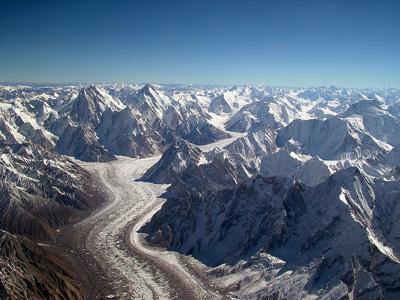cold
by clyde
No idea...have been at 60 below and was cold, so let me know if colder.
Barry's Response - Well Mr. Clyde. You've got me beat. I'm from Alberta. It's not the warmest place in Canada. It's not the coldest, either.
In Edmonton, the coldest I've experienced is 40 below. It doesn't matter if it's Fahrenheit or Celsius. When they're that cold, they're exactly the same.
However, Saskatchewan has us beat when it comes to wind chill. That's awesome! In Regina, wind chills were over 4000 watts per square metre. For a wind chill equivalent, that's well below -60.
Come visit the Canadian Prairies. You should book a winter vacation in the Arctic if you want a real adventure. These small towns way up north like Yellowknife and Iqaluit will make you appreciate your own climate no matter where you are.
I've heard that...never been there. I'm not eager to try it either.
How do we determine Wind Chill values?
A variety of algorithms are used to calculate wind chill index values, wind chill equivalent values, and heat flux amounts. It's usually one factor roughly proportional to wind speed multiplied by another factor somewhat proportional to the difference in temperature between a warm body and the air.It depends on whose formula you check. Here's a page with some examples from Wikipedia. https://en.wikipedia.org/wiki/Wind_chill
The last table on this page shows how the Canadian government converts: https://www.canada.ca/en/environment-climate-change/services/weather-health/wind-chill-cold-weather/wind-chill-index.html#X-2015011511230218
Wind chill temperatures of -60°C or colder have been experienced by a certain percentage of the world's population.
Extremely low wind chill temperatures of that magnitude are usually found only in places with the harshest winter climates, like Siberia or Antarctica. Not surprisingly, these regions have small populations.
The majority of people around the world don't experience extreme wind chill temperatures of -60°C or colder on a regular basis. Most of the world's population lives in places with milder climates, so extreme temperatures of this sort are unlikely to affect us.
Here's an example to think about: We could compare the climates of Yakutsk (Siberia) and Winnipeg (which has a reputation for being the coldest major city in North America) by highlighting the significant differences in temperature, precipitation, and overall climate conditions between the two cities.
When comparing the climates of Yakutsk and Winnipeg, it becomes apparent that these two cities experience vastly different weather patterns. Yakutsk is located in eastern Siberia (at a latitude of 62°N - similar to Yellowknife) and it experiences extreme cold temperatures like these, while Winnipeg is located in central Canada and has a more temperate climate.
Yakutsk is one of the coldest cities on earth. The region experiences extremely harsh winters, with average January nighttime temperatures falling below -40°C. The record low temperature is -64°C (-84°F) and if there were a wind at the time, the wind chill would be colder. Its high latitude location, the Siberian high-pressure system, considerable distance from any ocean and the surrounding permafrost all contribute to the city's climate. The summers in Yakutsk are short and cool, with average temperatures hovering around 20°C (day and night) in July. The record high is 38°C (101°F), though, while the record low wind-chill is -57.
Winnipeg, at 50°N, has at least twice the population of Yakutsk and a continental climate characterized by distinct seasons. The winters are cold, but not as severe as those in Yakutsk, with average January overnight temperatures ranging from -20°C to -25°C. Winnipeg's summers are similar to Yakutsk, though wetter and longer lasting.
Precipitation patterns are another notable difference. Yakutsk receives relatively little precipitation each year, most of it falling during the summer months in the form of brief but heavy showers. Winnipeg has a more even distribution of precipitation throughout the year, including healthy rainfall during the summer and snowfall during the winter.
It is important to note that these differences in climate are a result of the geographical and atmospheric characteristics of the different regions. Winnipeg experiences milder winters and slightly warmer summers than Yakutsk, which experiences frigid winters and short summers. We can better appreciate the diversity of climates around the world by understanding these distinctions.
Join in and write your own page! It's easy to do. How? Simply click here to return to Cold, eh?.
Do you have concerns about air pollution in your area??
Perhaps modelling air pollution will provide the answers to your question.
That is what I do on a full-time basis. Find out if it is necessary for your project.
Have your Say...
on the StuffintheAir facebook page
Other topics listed in these guides:
The Stuff-in-the-Air Site Map
And,
Thank you to my research and writing assistants, ChatGPT and WordTune, as well as Wombo and others for the images.
GPT-4, OpenAI's large-scale language generation model (and others provided by Google and Meta), helped generate this text. As soon as draft language is generated, the author reviews, edits, and revises it to their own liking and is responsible for the content.



